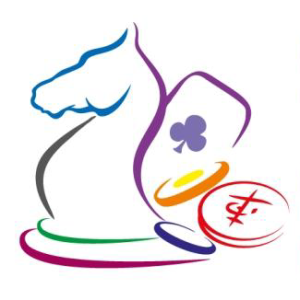
 When games play out on a board or at a card table, rather than a field, court or pool, expect some doubts from onlookers as to whether they fit the definition of sports.
When games play out on a board or at a card table, rather than a field, court or pool, expect some doubts from onlookers as to whether they fit the definition of sports.
But for contestants in the World Mind Sports Games, the Olympiad is on, even when they have to struggle to keep it going.
The World Mind Sports Games, an invitational event for competitions in bridge, chess, draughts (known in America as checkers), go (a Chinese board game) and xianqi (Chinese chess) was first held in Beijing in 2011 and remained in the Chinese capital for the next three years. It is the brainchild of the International Mind Sports Association, or IMSA.
Its future has been uncertain in recent months but there remains interest in keeping the Games alive; this stems from the lack of opportunity for mind game enthusiasts to compete in other multi-sport events.
Getting sponsors and maintaining visibility is a challenge for these games, despite the fact that they are played around the world.
For a time, IMSA also worked with SportAccord, the umbrella organization for Olympic and non-Olympic sports, to produce the SportAccord World Mind Sport Games. However, following remarks made in April 2015 by SportAccord president Marius Vizer, who criticized the IOC, many governing bodies stepped away from SportAccord.
In December, it was announced that the 2015 IMSA Elite Mind Games would replace the Sport Accord World Mind Games, and would take place February 25 to March 3, 2016, in Huai’an City, Jiangsu Province, China. A venue has not yet been announced; however, the IMSA website noted the event has a budget of more than $2.5 million, and that “all five members of IMSA will be featured: Bridge, Chess, Draughts, Go, and Xiangqi. In all, we expect about 180 players and 50+ international officials to participate.”
If the IMSA Elite Mind Games come off as planned, it may be a step toward regaining the visibility of the event and convincing the world of its potential.
While mind sports (and board and card games in general) remain a niche interest, they are viable aspects of the travel market. Within the U.S., for example, there are championships for Scrabble, with the North American Scrabble Championship previously being aired on ESPN and ESPN2. The tournament rotates locations around the United States; the 2015 event was held in Reno, Nevada. The United States Bridge Federation holds its 2016 U.S. Open in Denver, Colorado, in May. St. Louis, Missouri, will host the U.S. Chess Championships in April. And the World Series of Poker continues its astonishing run of popularity with its 2016 event in (where else?) Las Vegas from late May through July.
Another variation on mind sports is e-sports, which has gained explosive popularity in the travel market.
The ability to play many mind sports online (Texas Hold’Em and Words with Friends, anyone?) has also contributed to continuing popularity, with multiple sites and platforms for participation. The World Mind Games sponsored online tournaments from 2011 to 2013, although there is no record of any other Internet-based competition held by IMSA since that time.
And recognition continues to be a struggle. In 2015, the international federations for bridge and chess (along with a number of other sports groups) petitioned the organizing committee of the Tokyo 2020 Olympics, asking for inclusion in the Games. Neither made the preliminary round of cuts.

